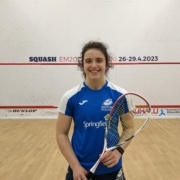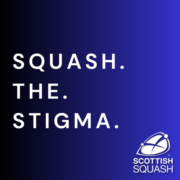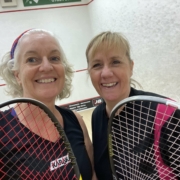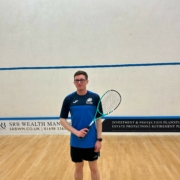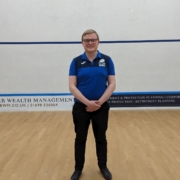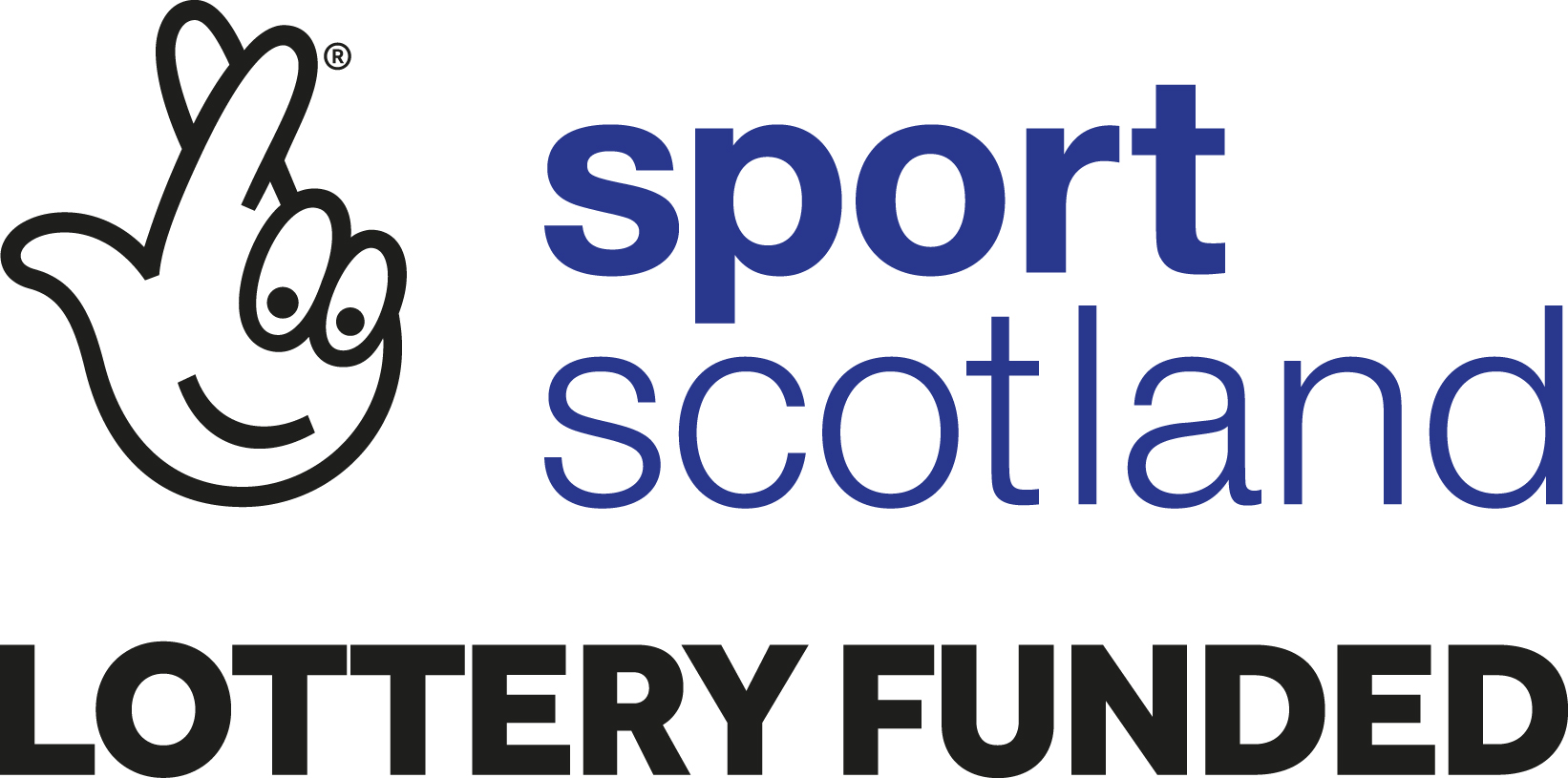Squash the Stigma: “As soon as things get tricky, the first thing I do is talk to someone”
Sport at the highest level can take its toll on athletes, with the constant pressure of training hard, competing to win and trying to avoid injury.
As one of Scotland’s most promising young squash players, Georgia Adderley knows these ups and downs well, and has developed her own strategies to get through the hard times.
Georgia said: “The biggest thing for me is just being thankful that I can play the sport.
“When I start overthinking my ranking, or winning, or earning enough money to keep playing, it becomes really difficult for me.
“I remind myself how thankful I am that I can play squash every day in a great environment, and in so many amazing countries.”
The squash star from Edinburgh is renowned for her effort on court, regularly diving and chasing shots which other players may consider lost causes.
This persistence has paid off, with four PSA titles alongside the crown of National Champion earned in 2022.
As well as the constant challenges of professional sport, Georgia has faced challenges off-court.
The 22-year-old reflects on a difficult time in her life, when she attended counselling to support her mental health.
Georgia said: “I’m in a really great place just now, but that hasn’t always been the case.
“When I left school, I was processing a lot of past trauma, mainly to do with family illnesses, and the impact that had on me.
“I learned a lot about myself, and I learned about the importance of loving yourself and being kind to yourself.
“As soon as things get tricky now, the first thing I do is talk to someone, and I think that’s one of the best ways to feel safe.”
Earlier this year she had knee surgery and has only recently returned to action.
From experience, Georgia knows the impact that injury can have on an individual’s mental health, and she takes steps to stay positive during enforced breaks from squash.
From learning chords on the guitar, committing to reading every day and completing her dissertation, Georgia is thankful for the opportunities that her recovery time gave her – even if she is now delighted to be back on court.
She said: “When I was 16, I had a big injury, and that was probably where things started to get tough for my mental health.
“I had a bit of an identity crisis where I questioned, ‘who am I without this sport?’
“Going into this injury I set a lot of goals for myself and kept a positive mindset to get through my recovery.”
Georgia balances her time between squash training and competition, and her final year of a Sports Science degree at Edinburgh University.
As she approaches her final exam, she has learned the importance of planning to make sure she can get everything done, and in turn, reduce stress.
The talented youngster said: “For me, squash is my priority so that goes into my diary first, then I plan around that.
“I also set a time limit for myself where I never work past 9.00 PM, because I know that I’m not going to function well after that time.”
As part of our Squash the Stigma campaign, we are encouraging members of Scotland’s squash community to anonymously share their own squash related mental health stories. We will share some of these on social media as part of the campaign. If you would like to share yours, click here.

